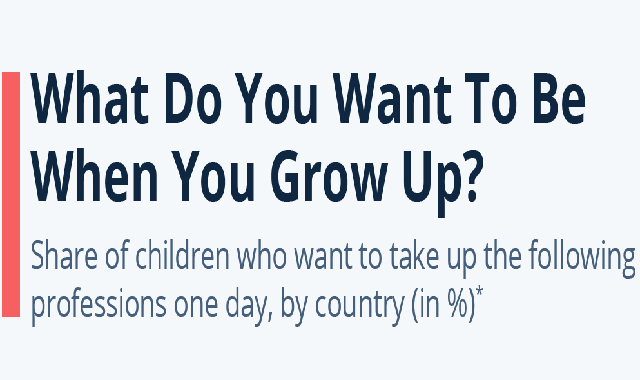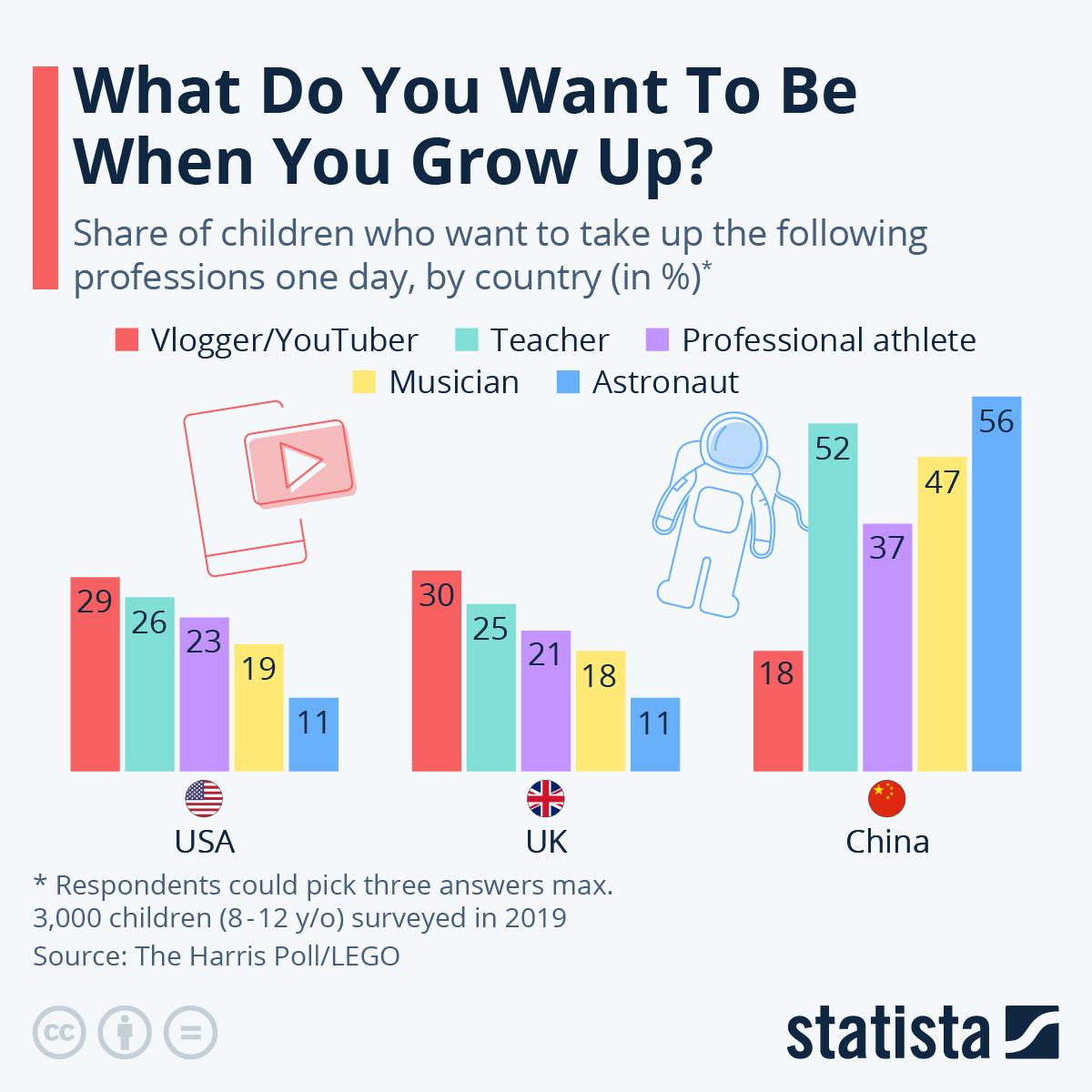Becoming an astronaut was a dream of many young children but it appears that this profession has lost some of its glamour, at least in the United Kingdom and the United States. Children in these regions are more interested in becoming a social media influencer rather than jetting off into space. Chinese children have opposite views, more than half (56 percent) of 8 to 12-year-olds said that they would most like to become an astronaut when they grow up and only 18 percent said they would become an influencer.
The infographic has the responses of nearly 3,000 children
who were asked which profession they are most drawn to. The options given were:
influencer/YouTuber, astronaut, teacher, professional athlete and a musician, as
part of a 2019 study by The Harris Poll and Lego Group. They could choose up to
three options.
Though the exact reason of the difference of ambitions is unknown, there are a few factors that can be considered. For example, it is generally considered that the peak of the U.S. space exploration was some 50 years ago, when Neil Armstrong was the first man to walk on the moon. Back then, there would be a higher share of children wanting to be astronauts. Meanwhile, China has geared up in terms of space exploration in recent years. The president Xi Jinping stated that he has ambitions for the country to become a “great space power.” This is already happening, with developments such as China’s Tiangong space station set to finish construction this year.
Another possible reason of interest, as suggested by Eric
Berger from Ars Technica, could be the education system in China puts more
emphasis on the value of science and space exploration. The survey also found
that Chinese children showed more interest in space subjects than children in
the other two countries. When asked about whether humans would ultimately live
on other planets or in outer space, 95 percent of Chinese children said they
would want to live beyond Earth themselves, whereas in the U.S. and UK it was
still high, but under 70 percent.
Maybe, it is not about the lack of interest in space but
more about glamour and relative exposure to the social media industry. Where
the United Kingdom and the United States have taken the focus to social media
usage in recent years, China has started to tighten its boundaries on such
sites. They are strict especially when it comes to kids and the dangers tied
with internet addiction and negative impact on both physical and mental health,
such as weakness of eye sight and effect on concentration.
Douyin, the version of TikTok available in China, does not permit
children under the age of 14 to use it for more than 40 minutes a day or
between the hours of 10 p.m. and 6 a.m. In China, the app also features to show
more educational content to draw attention towards educational ideas, as
compared to the international version.
Infographic by: statista


